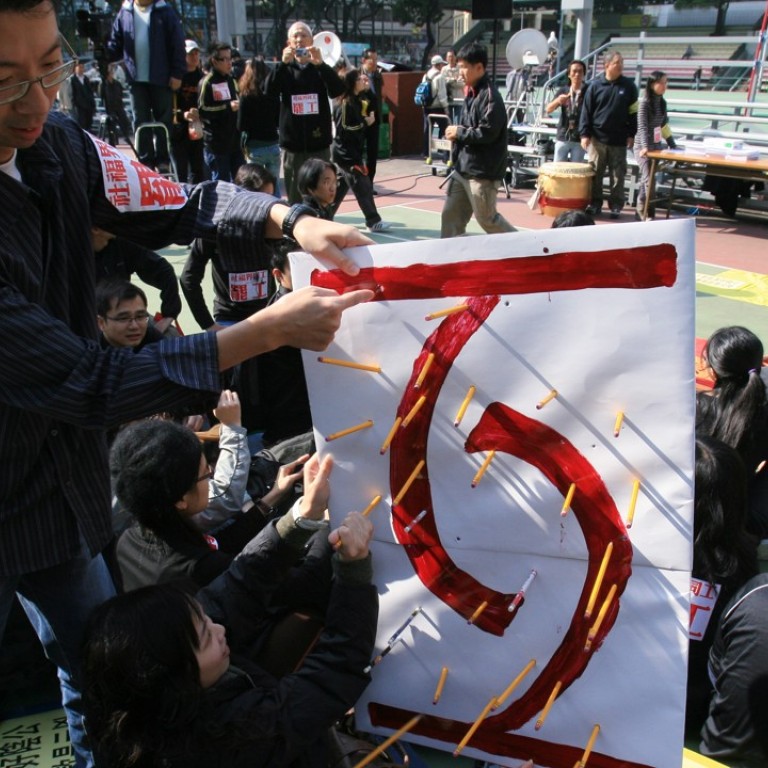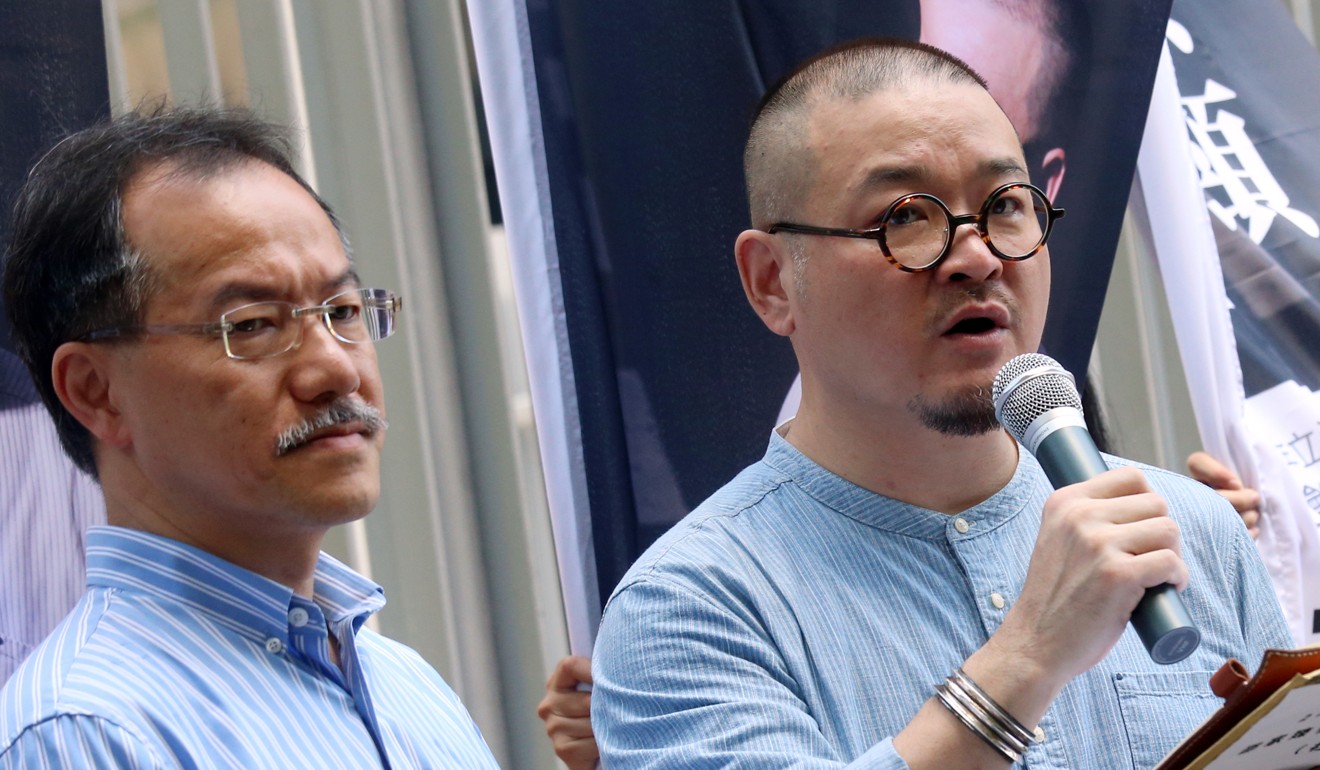
Trio threaten to quit task force if Hong Kong government refuses to overhaul ‘problematic’ funding system for NGOs
Seven in 10 social workers and service recipients polled say lump sum grant scheme needs thorough reform
Three members of a task force looking into funding for social welfare organisations threatened to quit the official panel should the government refuse to promise a complete overhaul of the existing system, which they slammed as problematic.
The calls made by Hong Kong Social Workers’ General Union internal vice-president Cheung Chi-wai and pro-democracy lawmakers Shiu Ka-chun and Dr Fernando Cheung Chiu-hung echoed the results of a recent study in which 95 per cent of social workers and service users polled agreed that the current subsidy system required thorough reform.
Seven in 10 respondents polled by the newly established Social Welfare Reform United Front also found the task force – established earlier this year – to be unrepresentative, and demanded more voices from frontline workers and service users be included.

Critics have slammed the system, which was supposed to give the organisations more flexibility, saying it had left behind a range of problems over the past decade, compromising service quality.
Social worker Irving Baleros, a member of the alliance, criticised the government for limiting the scope of work of the task force in its first meeting last month by suggesting it would seek only to optimise the system.
“The social welfare sector has made clear its dissatisfaction with the lump sum grant over the years,” Baleros said. “The effort [to solve the problem] would be in vain if only some wishy-washy remedies are carried out instead of an overhaul.”
The front said the system had allowed managers of organisations to enjoy disproportionately generous perks compared to frontline workers, who were often poorly paid. The resulting high turnover rate among social workers also affects services provided to the elderly or to people with disabilities, it said.
While the task force is set to hold its next meeting on Tuesday, Shiu said: “I will have to think twice whether to stay [on the panel] if the government refuses to expand its scope of work or respond to the findings of the latest study.”
The front also called on the government to bring in long-term planning on social welfare, estimating the demand for different kinds of services in the coming decades.
Hong Kong NGOs dole out big cash allowances to top staff, study finds
In a separate development, Secretary for Labour and Welfare Dr Law Chi-kwong hit out at two lawmakers with social work backgrounds for not studying relevant documents – such as the Elderly Services Programme Plan – thoroughly before commenting publicly on government policies. Though Law named no names, he was apparently referring to Cheung and Shiu.
He wrote on his blog that one of them had described the idea of subsidising senior residents to hire foreign domestic helpers as “surprising” in a Legislative Council meeting, despite it having already been mentioned in the plan. The other, he wrote, also acted like he had not heard of a recommendation which had been detailed earlier in the plan.
“I found it strange when I heard their comments. If they indeed care about the content of the programme plan so much, they should read it to the end right away. How could they have missed the relevant parts, and how many other recommendations put forward by the plan are they not aware of?” Law wrote.
In response, Cheung said he had not been describing the policy suggestion as surprising but the government’s goal to set a zero-waiting-time target for the community care services. He said Law was creating a diversion, and urged the government to work harder on welfare planning.
Shiu said he did not want to get into a war of words with Law, which he said would not help solve the problems.
A spokesman for the Social Welfare Department did not directly address the calls made by the front but said it would “actively engage stakeholders” to present their views in the review of the grant system.

